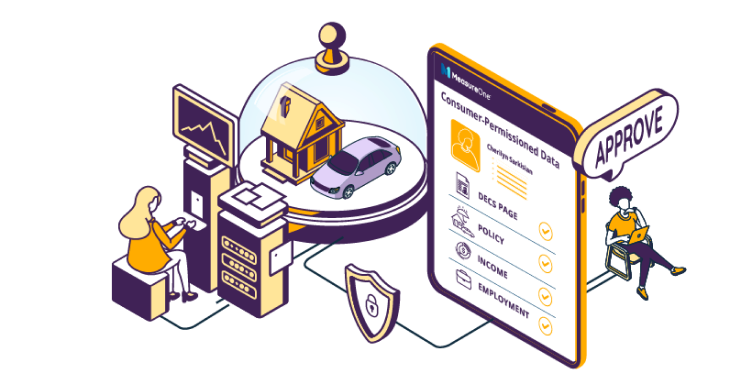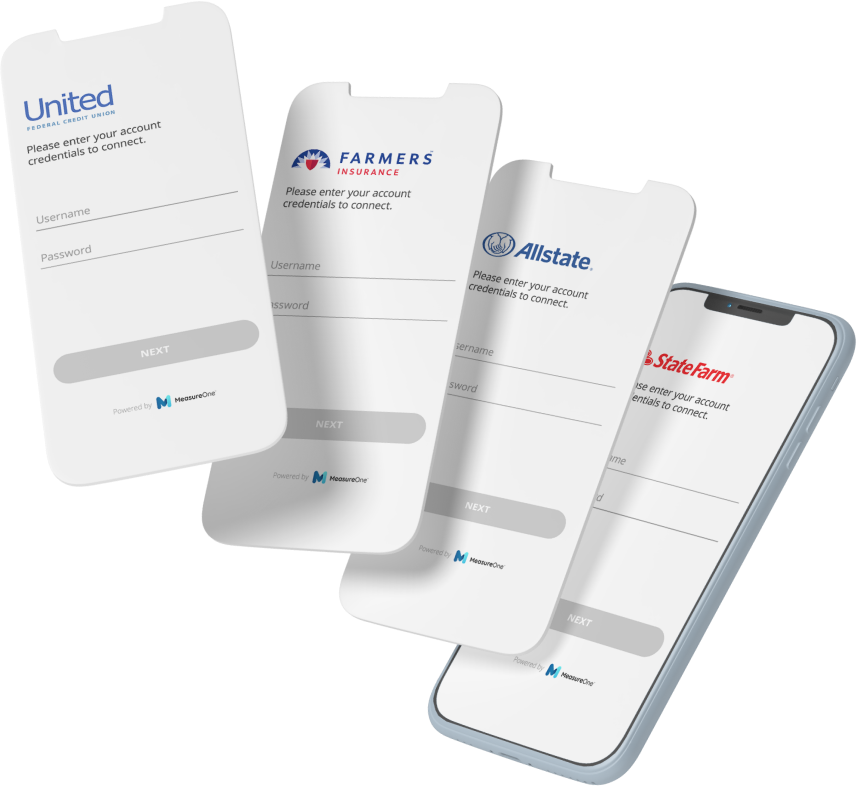How does the MeasureOne platform work?
MeasureOne streamlines the process of collecting verified consumer data for businesses via consumer-centric data sharing. We combine real-time access to hundreds of thousands of online connected consumer accounts with fully automated, document-agnostic Intelligent Document Processing (IDP), allowing businesses to collect verified information from both connected accounts and uploaded documents.
With 100% accurate document data extraction, built-in fraud prevention, and standardized outputs, businesses receive reliable data regardless of format. Our platform also supports continuous data feeds for ongoing monitoring, updates, and refreshes—ensuring data stays current over time.
Through proprietary cross-source data analysis and full API access, businesses gain seamless integration and actionable insights that go beyond simple verification—unlocking smarter decision-making, faster workflows, and better customer experiences.
How do companies get insurance data?
Traditionally, data collection has involved manual processes, such as filling out forms and requesting records, which can be time-consuming and error-prone. However, with the advent of digital technologies, new data collection methods have emerged, such as MeasureOne's platform for insurance data.
MeasureOne's platform is designed to provide automated access to insurance data by collecting data directly from primary sources, such as consumers' online insurance accounts. Via the MeasureOne platform, a company sends a request to the consumer for their insurance data and the consumer is prompted to connect their online insurance account. This instantly transmits the requested insurance data back to the business, all with the consumer’s consent.
What type of insurance data is collected?
Companies request and access a variety of insurance data. This can include personal information about policyholders, such as their age, address of insured property, as well as information about their policies, such as their payment schedule, dates of coverage, or total premium.
Why is data so important in insurance?
Data is essential to the insurance industry because it allows insurers to make informed decisions about risk, pricing, and claims management. By analyzing and using data effectively, insurers can:
Accurately assess risk: Insurers use data to evaluate the likelihood and severity of potential losses. This helps them to accurately price policies, identify areas of increased risk, and make informed decisions about risk management.
Improve pricing: By analyzing data on individual policyholders, insurers can tailor their pricing to the specific risk profile of each policyholder. This can help to ensure that premiums are fair and reasonable while also protecting the insurer's bottom line.
Optimize underwriting: Data allows insurers to evaluate the risk of a particular policy accurately. Insurers can use this information to optimize their underwriting processes, ensuring that they are making informed decisions about policy issuance and coverage.
Enhance claims management: Data is also critical for claims management. Insurers can use data to identify fraudulent claims, assess the severity of losses, and determine the appropriate level of compensation for policyholders.
Improve customer experience: By using data to personalize their offerings, insurers can improve the customer experience. For example, insurers can tailor their products and services to meet the specific needs and preferences of individual policyholders, making it more likely that they will renew their policies in the future.
Overall, data is critical to the insurance industry's success. By effectively collecting, analyzing, and using data, insurers can make informed decisions that protect their bottom line while also providing valuable protection and support to their customers.
How long does the data collection process take?
Our data shows that most users complete the data request within 24 hours.





